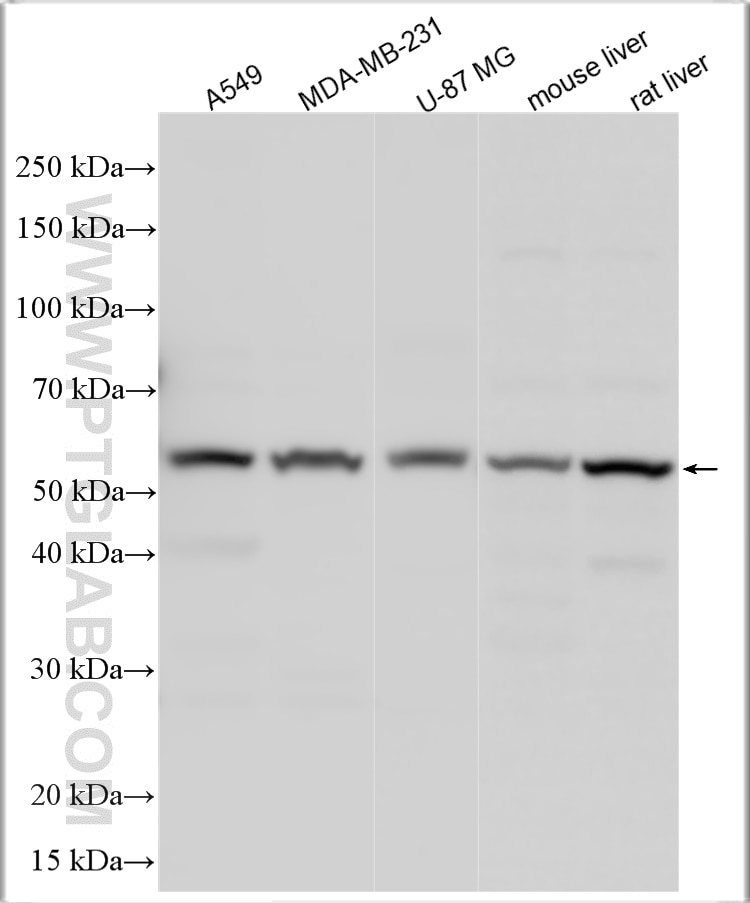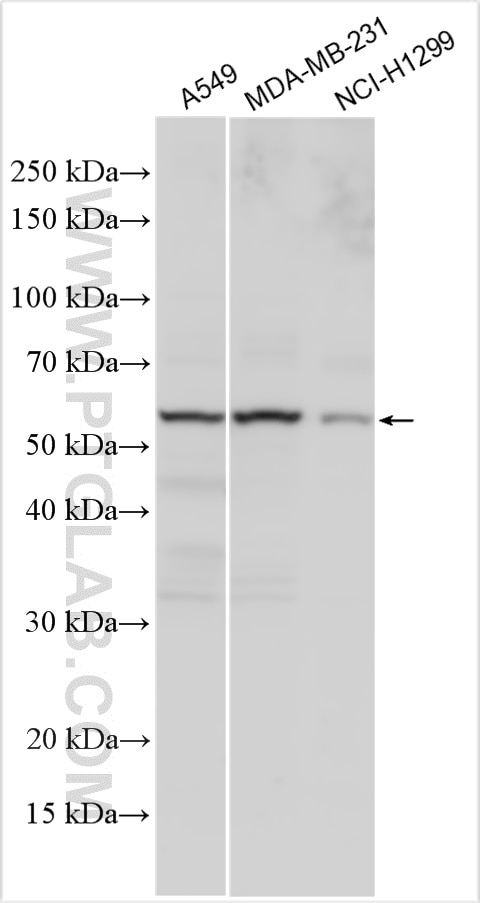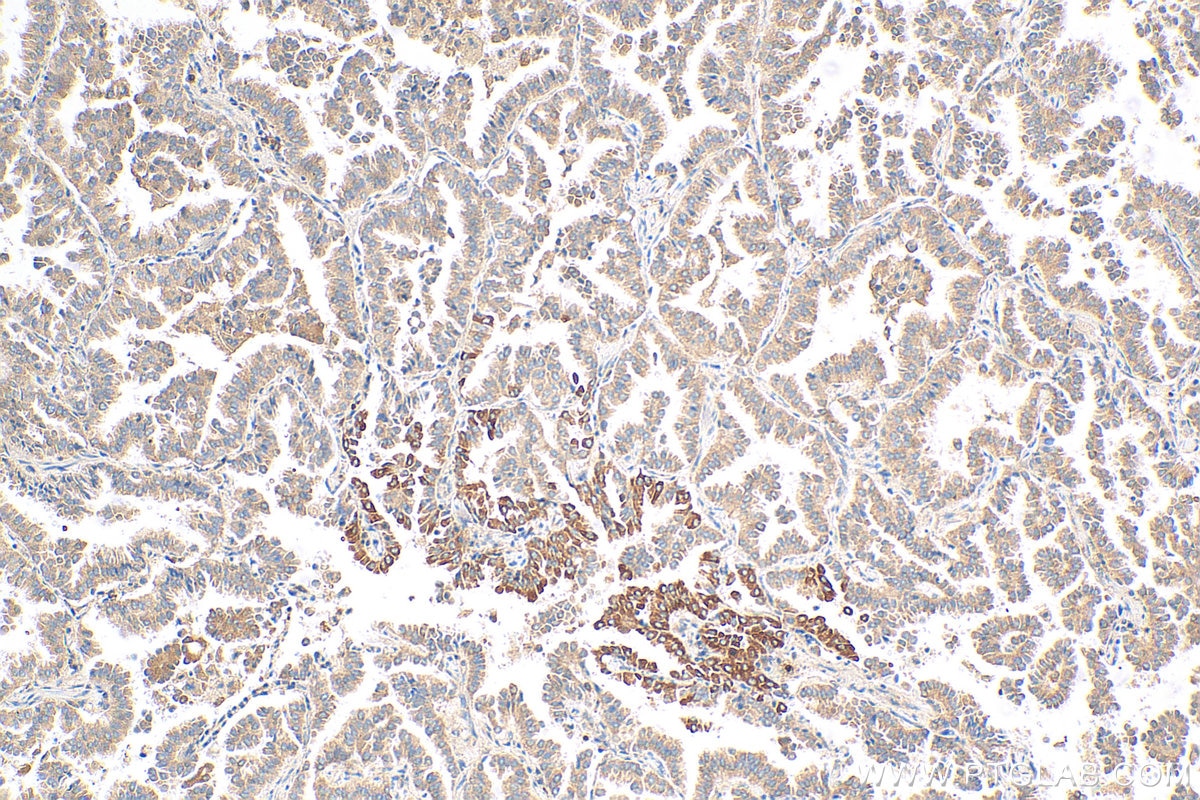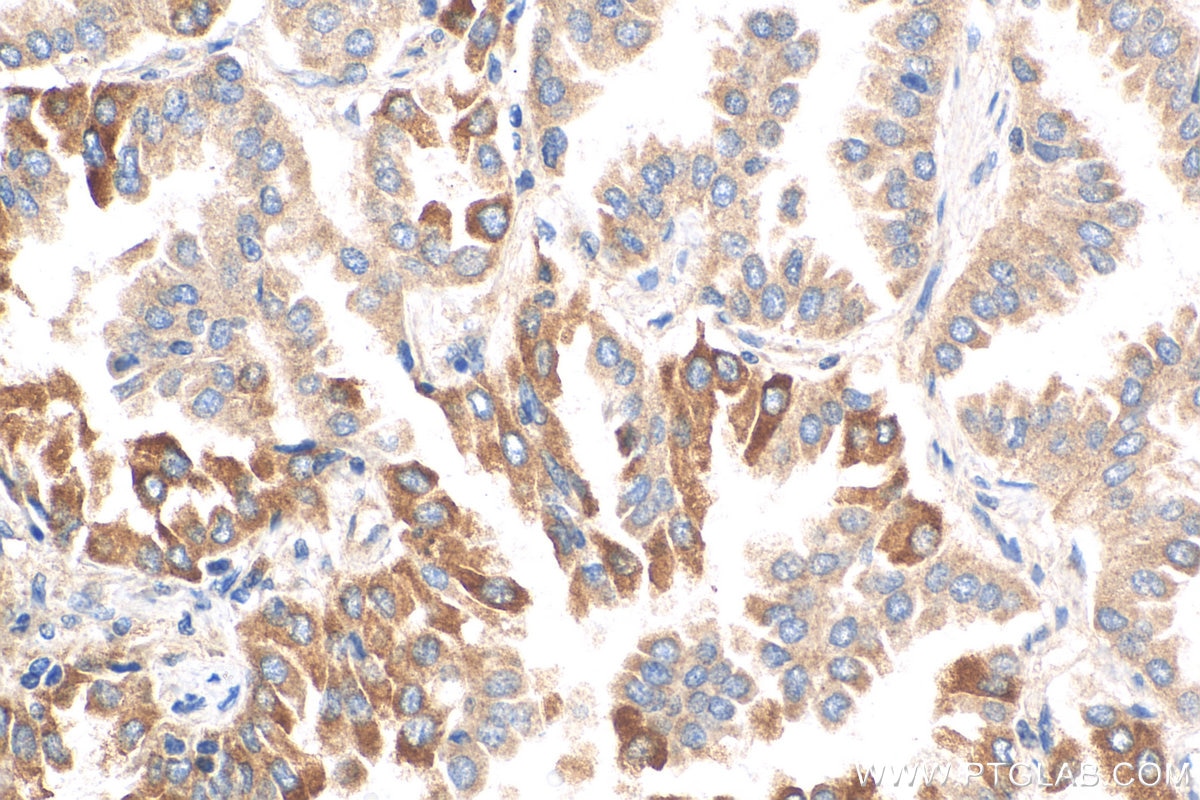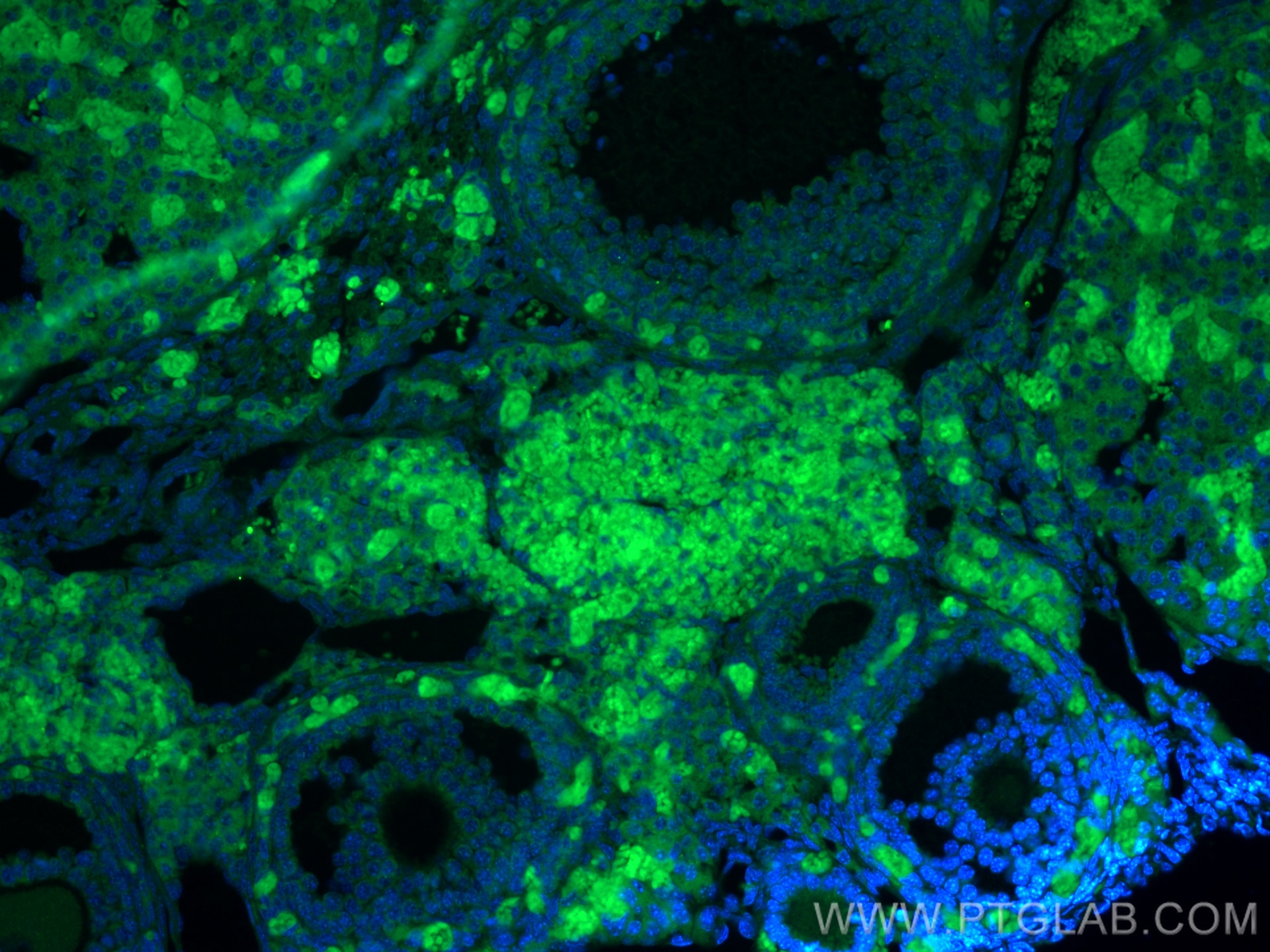Anticorps Polyclonal de lapin anti-TGFBR1
TGFBR1 Polyclonal Antibody for WB, IHC, IF-P, Indirect ELISA
Hôte / Isotype
Lapin / IgG
Réactivité testée
Humain, rat, souris
Applications
WB, IHC, IF-P, Indirect ELISA
Conjugaison
Non conjugué
N° de cat : 30117-1-PBS
Synonymes
Galerie de données de validation
Informations sur le produit
30117-1-PBS cible TGFBR1 dans les applications de WB, IHC, IF-P, Indirect ELISA et montre une réactivité avec des échantillons Humain, rat, souris
| Réactivité | Humain, rat, souris |
| Hôte / Isotype | Lapin / IgG |
| Clonalité | Polyclonal |
| Type | Anticorps |
| Immunogène | TGFBR1 Protéine recombinante Ag31620 |
| Nom complet | transforming growth factor, beta receptor 1 |
| Masse moléculaire calculée | 56KD |
| Poids moléculaire observé | 56 kDa |
| Numéro d’acquisition GenBank | NM_004612 |
| Symbole du gène | TGFBR1 |
| Identification du gène (NCBI) | 7046 |
| Conjugaison | Non conjugué |
| Forme | Liquide |
| Méthode de purification | Purification par affinité contre l'antigène |
| Tampon de stockage | PBS only |
| Conditions de stockage | Store at -80°C. 20ul contiennent 0,1% de BSA. |
Informations générales
TGFBR1 (TGF-beta receptor type-1) encodes a serine/threonine kinase receptor for transforming growth factor-beta. TGFB1, TGFB2 and TGFB3 signals are transduced from the cell surface to the cytoplasm and regulate lots of physiological and pathological processes including cell cycle arrest in epithelial and hematopoietic cells, control of mesenchymal cell proliferation and differentiation, wound healing, extracellular matrix production, immunosuppression and carcinogenesis. Mutations in both TGFBR2 and TGFBR1 were associated with early onset and aggressive thoracic aortic disease with MFS-like skeletal features, but also hypertelorism, craniosynostosis, developmental delay, cleft palate and bifid uvula, congenital heart disease and aneurysms, and dissections throughout the arterial tree with marked arterial tortuosity (PMID: 15731757, PMID: 27879313).
